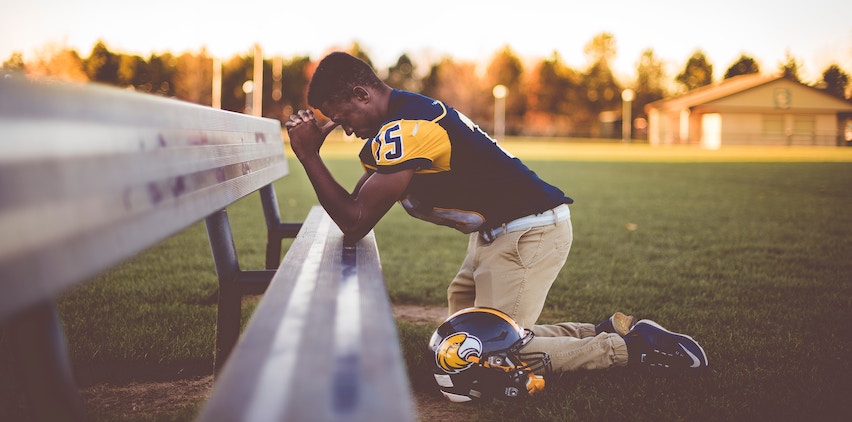

January 19, 2020 | Categories: Fitness, Mental Health
Whether you’re a triathlete struggling to achieve a personal record, or maybe just a member of the company softball team that lost the championship game, chances are, you have experienced defeat. The problem is, if you’re a solo sport athlete, you’ll likely be harder on yourself than if you had lost or failed as a member of a team sport, according to new sport psychology research. (Related: Three ways to move on from defeat)
Athletes who participate in solo sports (like running or swimming) were more likely to experience feelings of burnout and depression than athletes who participated in team sports, suggests recent findings by the British Psychological Society’s Division of Sport and Exercise Psychology. Lead researcher Dr. Jürgen Beckmann, Chair of Sport Psychology, Technical University of Munich, conducted two cross-sectional studies involving 199 junior elite athletes and 162 elite athletes (from a mix of team sports athletes and solo sport athletes) over several years and discovered that sport-specific stress combined with insufficient time for recovery was associated with symptoms of depression. The research concluded that negative attributions in individual sports’ athletes and a resigned coping style both predicted higher rates of depressive symptoms and burnout syndrome, says Beckmann.
“I am not surprised to read these findings, though I would not have expected the [number of athletes with depression] to be quite so high,” says Dr. Elizabeth Ward, a Boston-based psychologist, peak performance coach, and consultant unaffiliated with this study.
Although solo athletes gain the physical and psychological benefits of exercise, they don’t experience quite the same sense of camaraderie as a team sport athlete, even if they’re members of a team. “Looking longitudinally at the solo athletes, it may even be that people with certain personalities tend to play individual sports rather than team sports, whose members can often score quite high on extraversion and sociability,” says Ward. Elite solo athletes who train intensely may spend a lengthy amount of time alone or relatively alone.
Even though Ward has worked with many athletes from a wide variety of solo sports—including running, swimming, fencing, tennis, golf, ski racing—she hasn’t noticed a pattern of depression amongst these athletes. “I would imagine that many factors, such as how hard they train, how many years they have competed, family support, friendships, coaching experience, and so on, play a part,” Ward says.
Beating yourself up for your performance at your last race? Perfectionists may be more likely to experience burnout, which may also lead to depression, says Beckmann. Burnout usually presents as a lack of interest in training, says Ward. “In our findings, the major difference that emerged was differences in attribution with athletes in individual disciplines showing more negative attributions, like blaming failure on internal stable factors in themselves, like a lack of ability,” says Beckmann. In other words, individual responsibility for success or failure is much more obvious when it feels like there’s only one person to blame. In addition to that, experiencing guilt and incompetence is also related to depression, he says.
One sign of depression can be a lack of interest in something that person had previously enjoyed. Other symptoms can include: headaches or chest pains; changes in appetite, sleep, and activity levels; or a melancholy mood, feeling agitated or like motor skills are slower. If you experience any of these symptoms for two weeks—including a negative attitude about training for your sport—you may be suffering from depression.
There isn’t a quick solution to these problems, but receiving support from a sports psychologist can help, according to findings from Beckmann’s 2013 research, published in the Journal of Clinical Sport Psychology. “It is very important that within the sport, the system barriers for seeking such help are removed, or, even better, athletes are actively supported in finding help,” says Beckmann.
Read the full article on Headspace.
Leave a Reply